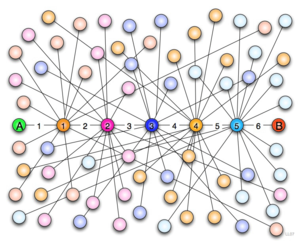I’m grateful to have a wise and funny husband. Occasionally when I’m indecisive or anxious about my writing, he’ll say, “Do something, even if it’s wrong.”
On a recent, blisteringly hot Saturday when I was feeling prickly because I couldn’t write worth a darn, he said, “Let’s go to a museum.” What? The afternoon had already gotten a good start, and we would have only an hour or so to walk around once we went through the heat and trouble of getting downtown. Was it really worth it?
We went, and you can bet that I wasn’t the best company for the first part of that hot trip down to the museum.
But lucky us—as we walked into Washington D.C.’s National Gallery of Art‘s East Building, we were met with an electric atmosphere. We had happened upon a free, intimate performance given by stars of Russian ballet: two ballerinas from the Bolshoi Theatre and two dancers from the Mariinsky Theatre.
Dancers from Russia performing excerpts from ballets

Anna Antonicheva
There on the East Building’s mezzanine, we joined a relatively small group of people in summer garb, surprised at their good fortune as they were visiting the Smithsonian.
We sat within yards of these amazing artists, closer than one could ever hope to be, as they danced for an hour in honor of the special exhibit, Diaghilev and the Ballets Russes, 1909-1929: When Art Danced with Music. They performed excerpts from the repertoire of Diaghilev’s Ballets Russes.
So let me give credit to my husband for his good advice, applicable to all sorts of situations—especially to difficult moments often encountered in writing a dissertation.
Ease the pressure. Awaken your creative side and aesthetic sensibilities, or whatever your strengths are, and see what happens. Oddly enough, doing something that at first might seem as if you are procrastinating and merely fleeing the hard work of writing can yield unexpected benefits, such as increasing your mental toughness.
Breaking open a tired writing project
When you return to your writing, you most likely will note greater mental clarity, quickness, and toughness, as well as an increased patience for your writing process. An improved mental and emotional state will help your writing come more easily.
If the perfect word, the right beginning of a paragraph, or the heart of the matter isn’t coming to you and you are twisting yourself into knots, just do something, even if it’s wrong. Doing something could even mean going to a museum. You might be surprised at what can invigorate an exhausted mind and break open a tired project.
When you have felt stymied by your writing, what breaks did you take that were particularly helpful? I’d love to hear from you.
All good wishes,
Nancy
Nancy Whichard, Ph.D., PCC Your International Dissertation Coach and Academic Career Coach http://www.smarttipsforwriters.com http://www.dissertationbootcamp.net http://www.nancywhichard.com nancy @ nancywhichard.com




